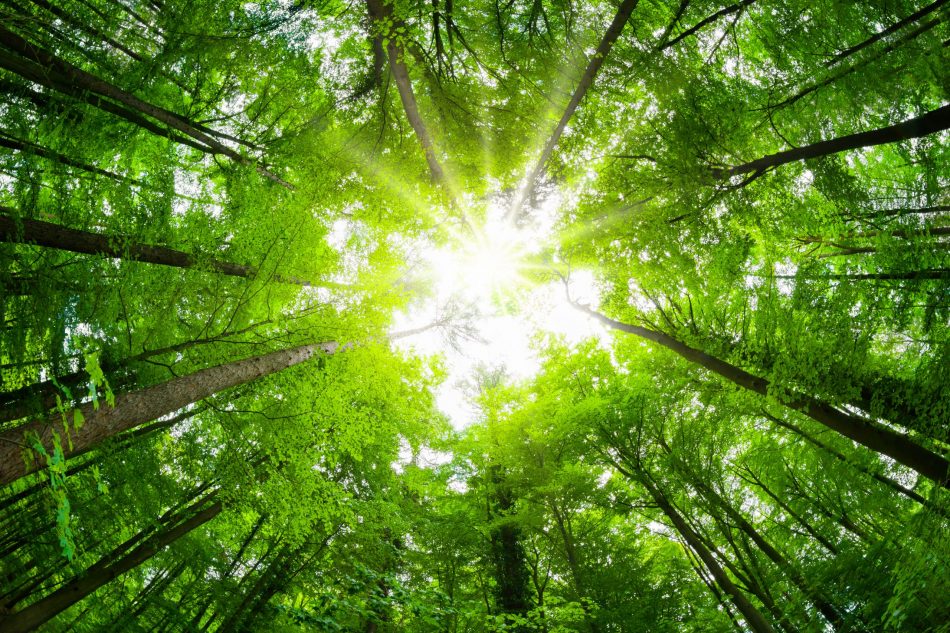Conservation
Nature relies on a rich diversity of organisms to keep it in balance. Conservation plays a key role in ensuring that environmental equilibrium is preserved. Learn about the solutions spearheading our efforts to promote biodiversity, safeguard vital ecosystems, and protect endangered species.

Birth of endangered red panda cub is a “symbol of hope” for the species
Since Disney Pixar released the animated feature film Turning Red earlier this year, interest in red pandas has blossomed. This is excellent news for the species since they're classed as endangered on the International Union for Conservation of Nature’s red list. Currently, fewer than 2,500 Read More...

Solutions Thinking and Climate Change
Open Minds and Optimism: Keys to Solving the Climate Crisis In February 2022, the world’s leading climate scientists released the most urgent warning on climate change to date. The report, released by the UN Intergovernmental Panel on Climate Change (IPCC), describes the implications of our Read More...

Love bees but need to relocate a hive? Here’s how to do it sustainably
If you are a longtime reader of The Optimist Daily, you’ll know that our team loves bees (and other pollinators). We've published many stories on why bees are critical to our world’s ecosystem and to our species' survival, as well as articles that highlight amazing people and initiatives that Read More...

What vampire bats teach us about friendship
There are still biological and behavioral mysteries to social bonding that experts are trying to figure out. With so many factors at play it can be hard to put a fine point on why we do some things and not others to get close to one another. Sometimes, it pays to look at other examples of mammalian Read More...

This African country is a guide towards protecting the oceans the right way
In 2010, the Convention on Biodiversity (CBD) has set a target that 10 percent of coastal and marine areas across the world should fall under protection by 2020. Two years after the deadline, that target still hasn’t been met today. As safeguarding our oceans’ wellbeing is becoming an Read More...

This is how Australia reduced plastic litter on its beaches by 30 percent
When it comes to reporting about plastic waste on beaches, the news is rarely good. But one report paints a more positive picture of the state of the issue in Australia. According to the study, plastic litter on Australian beaches has actually decreased by 30 percent in recent years. The research Read More...

Panama enacts landmark legislation giving Nature rights
Panama is among the 25 most megadiverse countries in the world. It is home to big cats like jaguars and ocelots, 6 distinct monkey species like capuchins, myriad marine and bird life, and many kinds of sloth like the pygmy sloth, who is endangered. Its mystifying array of creatures shoulders Panama Read More...

5 ways to save rainforests and the world every day
“At first, I thought I was fighting to save rubber trees, then I thought I was fighting to save the Amazon rainforest. Now I realize I am fighting for humanity.” - Chico Mendes, Brazilian environmentalist July 28 is World Nature Conservation Day. In honor of this, we're happy to offer Read More...

Returning Indigenous land could be our best conservation initiative yet
Eight years ago, the Australian government bought 19 farm properties throughout the Lower Murrumbidgee Valley in New South Wales with the intention of restoring the wetland region to its former glory. After reviewing proposals, the land was granted to the tribal council of the Nari Nari, who Read More...

Brown bear population in the Pyrenees makes a bear-y impressive comeback
Back in 1996, the addition of three bears from Slovenia launched a conservation plan to reintroduce the near-extinct brown bears in the Pyrenees. The brown bear population was already sparse, and unfortunately, the last native bear from the area was killed in 2004. After this sad event, four female Read More...


